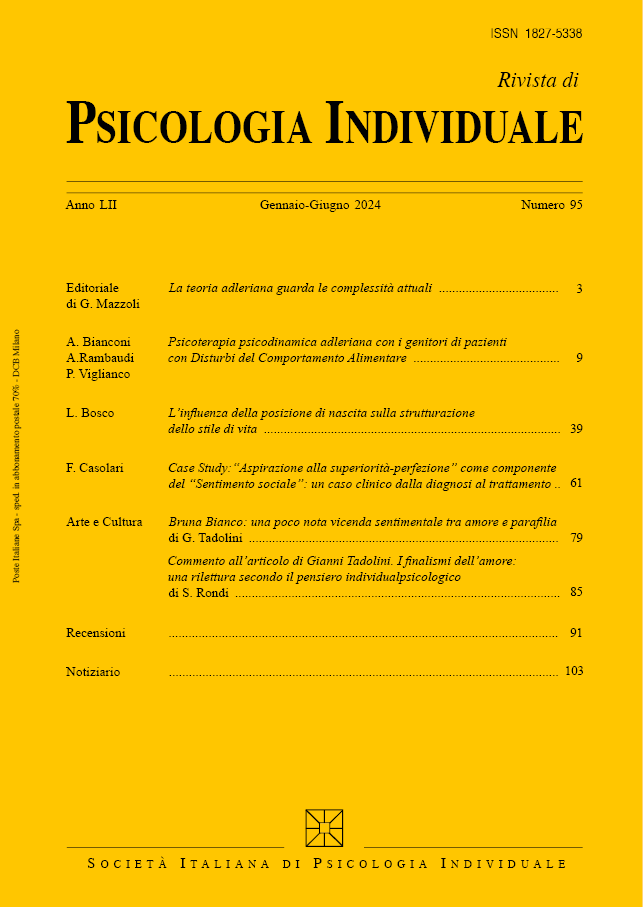Helping families change: an Adlerian approach to parents of drug addicts
Keywords:
addictions, substance, drugs, family, family intervention, parents, individual psychology, alfred adlerAbstract
The experience described in the text is based on years of work with drug addicts in centres in Lombardy, where treatment initially focused on the patient was progressively oriented towards the family, recognising the importance of the family environment in the recovery process. Initially, the institutional approach, which focused on the patient's anonymity, made it difficult to establish links with the families and the therapeutic intervention was often reduced to treating the symptom. The authors point out that drug addicts often present an adolescent personality, which has not completed its emotional development where drugs play a protective function from facing life's responsibilities, within a self-centred lifestyle that leads them to perceive others as tools and not as ends. A therapeutic intervention ideally divided into three phases is proposed: solidarity, analysis and activation. Solidarity consists of helping parents overcome their sense of guilt and shame. Analysis concerns the examination of dysfunctional family ways, while activation involves the inclusion of clear and consistent rules for the son. Intervention with families, unfortunately, is difficult due to the dynamics of manipulative alliances between parents and role conflicts. However, early intervention in family dynamics increases the probability of success






